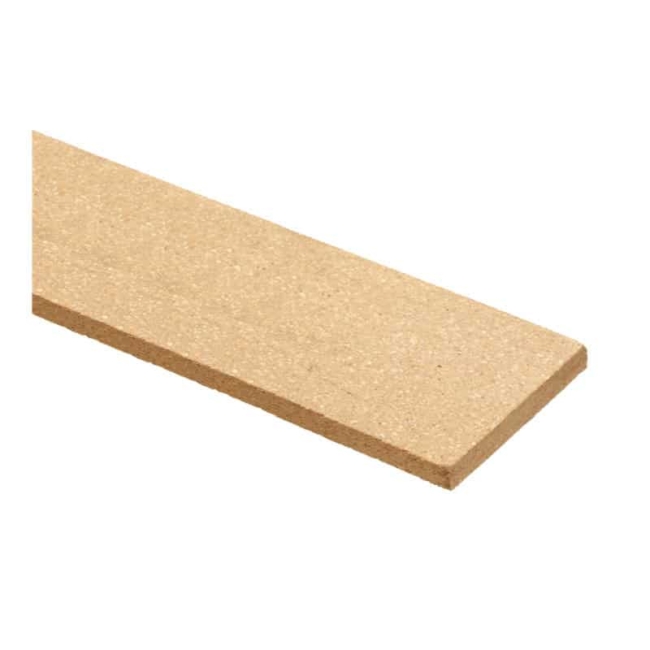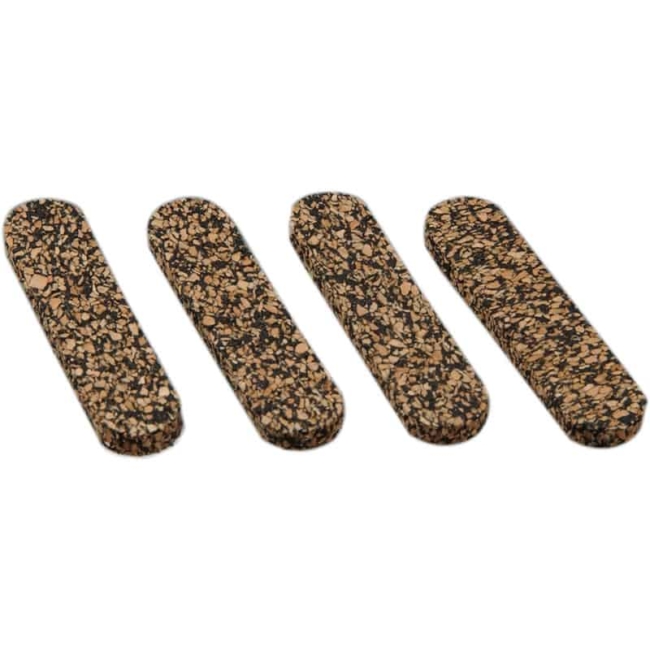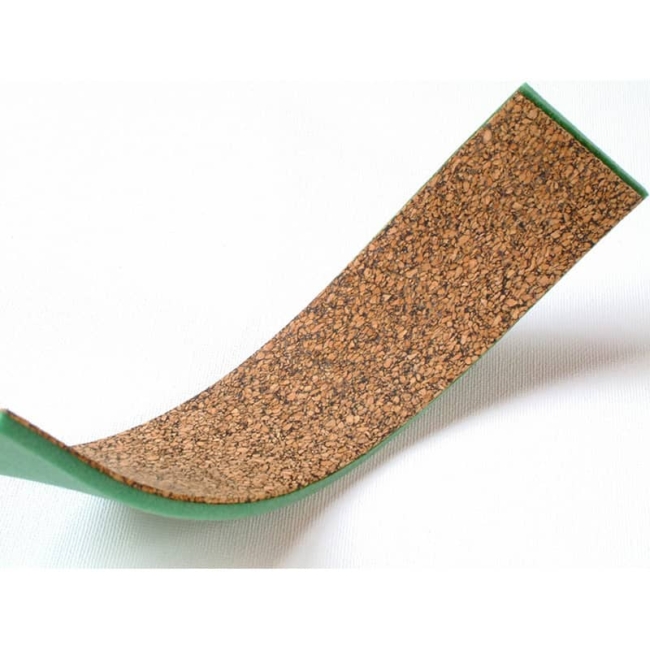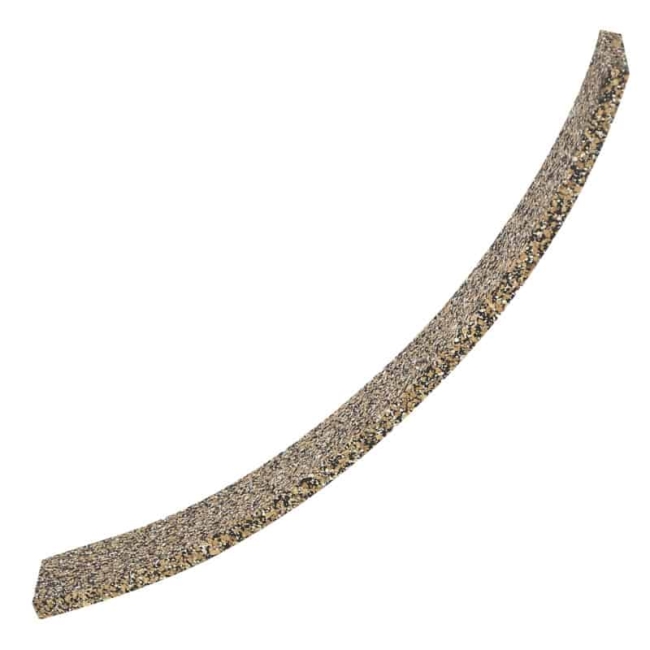Flexible Cork Strips for Sealing, Insulation & Gasket Use

Anti-Vibration Cork Strip

Natural Cork Strip

Neoprene Cork Strip

Nitrile Cork Strip – Durable, Oil-Resistant & Flexible

Synthetic Cork Strip
Advanced Seals & Gaskets Ltd are leading manufacturers of many strip materials, one of which is cork, all produced in our newly renovated facilities, using our band saws, strippers, log cutters, and even presses depending upon the size and quantity required.
In-house production allows us to closely oversee the whole production process to ensure that we consistently produce high-quality strips. Our cork strips are cut from sheets or rolls which are manufactured in a range of standard thicknesses, during our conversion process we can laminate layers of cork to produce greater depth, split some grades down for thinner ones, and supply the final strips with a plain or self-adhesive backed finish.
Cork strips are available in various grades including natural or bonded with either neoprene, nitrile, or synthetic rubber to give the cork more flexibility and added properties. Cork Strips are commonly used in applications as a gasket or for sealing, vibration, and sound control.
Strips
Here at ASG, we have the necessary machinery to produce strips in a vast range of materials including such as EPDM, neoprene, Plastazote, acoustic foam, polyethylene, solid rubber, silicone, plastics, and many more. A combination of our state-of-the-art facilities and highly skilled staff, allows us to produce strips with various finishes, including self-adhesive-backed and with the option to laminate multiple materials together.
What are Cork Strips?
Cork Strips are just one of ASG’s many products, produced by using dimensions, samples, or drawings provided by our customer advising us of the required length, width, and thicknesses required. Cork Strips can be used for a number of applications, such as gasket strip/tape for gap sealing, isolation strips for vibration, and noise absorption.
Natural Cork strip material is manufactured by compressing cork grains without the addition of any other chemical other than a liquid binder known as ‘agglomeration’. Bonded cork material is also manufactured using cork grains, but with added rubber granules (namely neoprene, nitrile, or synthetic rubber) which gives a ‘speckled appearance’, greater flexibility, and added properties suited to different applications and environments.
Cork material is flexible, lightweight, waterproof, and practical, suitable for a range of uses including outdoor furniture, lighting, engineering, automotive, building & construction, etc.
Why use Cork Strips?
Many customers choose to use strips manufactured from cork, due to the material’s many desirable qualities mainly thermal insulation, noise and vibration absorption properties, and sealing against air, oil, and chemical leaks.
Cork strips can be found used in many engineering industries where they are positioned underneath compressors and heavy plant machinery to help with the control and reduction of noise and vibration.
It is chemically inert, resistant to fungus and mould growth, flame retardant, anti-static, flexible, and durable. Cork material is easy to work with, it is an easy material to cut into strips, it holds adhesive well and due to its flexible nature, cork gaskets fit and adhere to most surfaces.
Advantages of Using Cork Strips
Each grade of cork comes with countless advantages and properties suited to different industries and applications. Cork is more aesthetically appealing compared to some sponge and rubber materials, it is non-toxic therefore safe to work with, water-resistant, resistant to mould and damp, extremely fireproof, and has excellent sound, vibration, and thermal properties.
Cork strips can be supplied in a range of thicknesses – including non-standard, they can be laminated to other materials for added properties and supplied in a plain for the self-adhesive backed finish. Cork strips can be quickly and easily manufactured using one of our many presses, kiss-cut machines, and even our oscillating knife for larger/thicker gaskets.
Benefits of Cork Strips
- Sound Suppression & Anti-vibration
- Thermal Properties
- Bonded with Other Materials Based on Application
- Oils Resistance
- Flame retardant
- Flexible
Different Grades
Cork Strips can be manufactured by ASG in a variety of different grades each holding its own unique properties and characteristics, suited for use within various industries. Below you will find a brief outline of some of our most popular cork.
Natural Cork – a combination of grains of cork and a liquid binder. Natural Cork is relatively cheap compared to sponge and rubber and can be used as air/dust/water seals, in thermal insulation, acoustic, and anti-vibration applications.
Resin-bonded cork – a lightweight, flexible cork, produced using cork granules bound together using a synthetic resin. This grade of cork is resilient to certain acids and is often used in water retaining applications.
Nitrile bonded cork – manufactured using a combination of cork and nitrile rubber granules, giving a speckled appearance. Strips made from this material can be used where oil and fuel resistance is required, or where high-temperature resistance is required, industries include automotive and general engineering.
Neoprene bonded cork – Neoprene bonded cork is a combination of cork and neoprene rubber granules, bound together. This grade has the same speckled appearance as the Nitrile Bonded cork, but with different properties, with the addition of the Neoprene rubber, the cork is suited to sealing at higher temperatures and resistant to weathering and oil. Neoprene Bonded Cork gaskets are suited to oil, engineering, electrical, anti-vibration, and soundproofing applications.





















